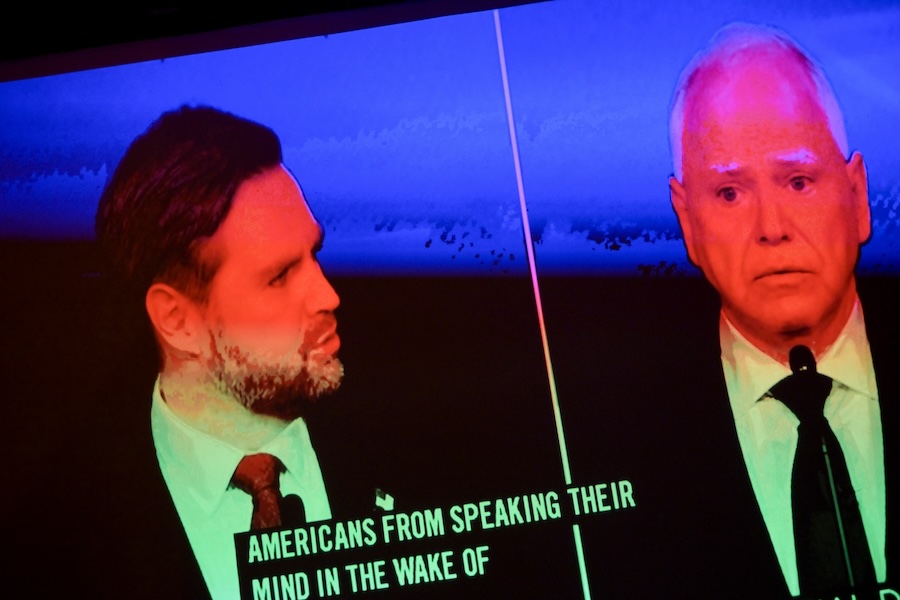Vice-presidential debates are notoriously inconsequential. The Vance–Walz back-and-forth will almost certainly make no difference to the outcome of the November election. But Governor Walz’s mostly, and uncharacteristically, emollient performance on Tuesday night, in which he pretended that Vance was a good-faith policy discussant rather than a malevolent threat to American democracy, embodied a significant rhetorical and tactical change in the Harris–Walz campaign.
To put it in the terms of mass entertainment—which is what a presidential election campaign essentially is—Harris found herself, back in August, with a smash hit on her hands: Kamala! Costarring Coach Walz, the Democratic ticket exuded box-office appeal. It revived the dejected party base, dominated the national hubbub, and penetrated the crucial, hard-to-reach voter markets containing the apolitical types, disaffected liberals, jaded centrists, and (perhaps most important of all) students. Donald Trump suddenly looked old and irrelevant, never more so than after his debate.
That was three weeks ago. Since then, Harris–Walz have more or less absented themselves from the national scene, the better to focus, it seems, on the battleground states and the moderate swing voters who may live there—swing voters whom the Democratic strategists believe can be reached only by discontinuing Kamala! and replacing it with a plodding documentary, running in select heartland theaters, that’s boringly and Bidenly about lowering costs, building up the middle class, and protecting freedoms. Harris has been reduced to a silhouette of centrist liberal competence, while Walz has barely been heard from.
A dynamic, newsworthy, grassroots-aligned movement has been replaced by a meat-and-potatoes campaign founded on the belief that chattering about pocketbook themes will not just win over undecided or unmotivated voters but win them over in numbers that will compensate for the loss of grassroots energy and support that anodyne centrism inevitably produces. That calculation didn’t work for Gore, Kerry, Hillary Clinton, or Biden, and it won’t work now. Elections since 2017 have demonstrated that the most efficient way for Democrats to win over low-propensity voters is to enthuse the party base and let their socially and digitally infectious enthusiasm sweep along those at the political margins.
Trump and Vance, meanwhile, have gone on the attack. Taking advantage of their opponents’ withdrawal from the national fray, they have been omnipresent with vicious lies about Haitian immigrants and more run-of-the-mill lies about the “chaos” (of crimes, floods, illegal border crossings) into which the country has been plunged by a White House that’s gone missing. For now, Harris maintains narrow polling leads in most of the battleground states. But there’s little question that Trump’s campaign is back on its feet. The vice-presidential debate seemed to confirm this new situation.
Then there’s the question of political agility. The election is still a month away. Anything can and will happen. The ability to respond quickly and effectively to surprises becomes crucial, not only to fend off adverse developments but to exploit positive ones. As I write this we are absorbing the new revelations, from the Special Counsel Jack Smith, about Trump’s culpable involvement in the Republican Party’s attempt to overthrow Biden’s election to the presidency. This represents an extraordinary opening for Harris and Walz. What will they do? Stick with the cautious, timid posture we saw at the veep debate, or go on the offensive? It seems extraordinary that this is a question at all.

